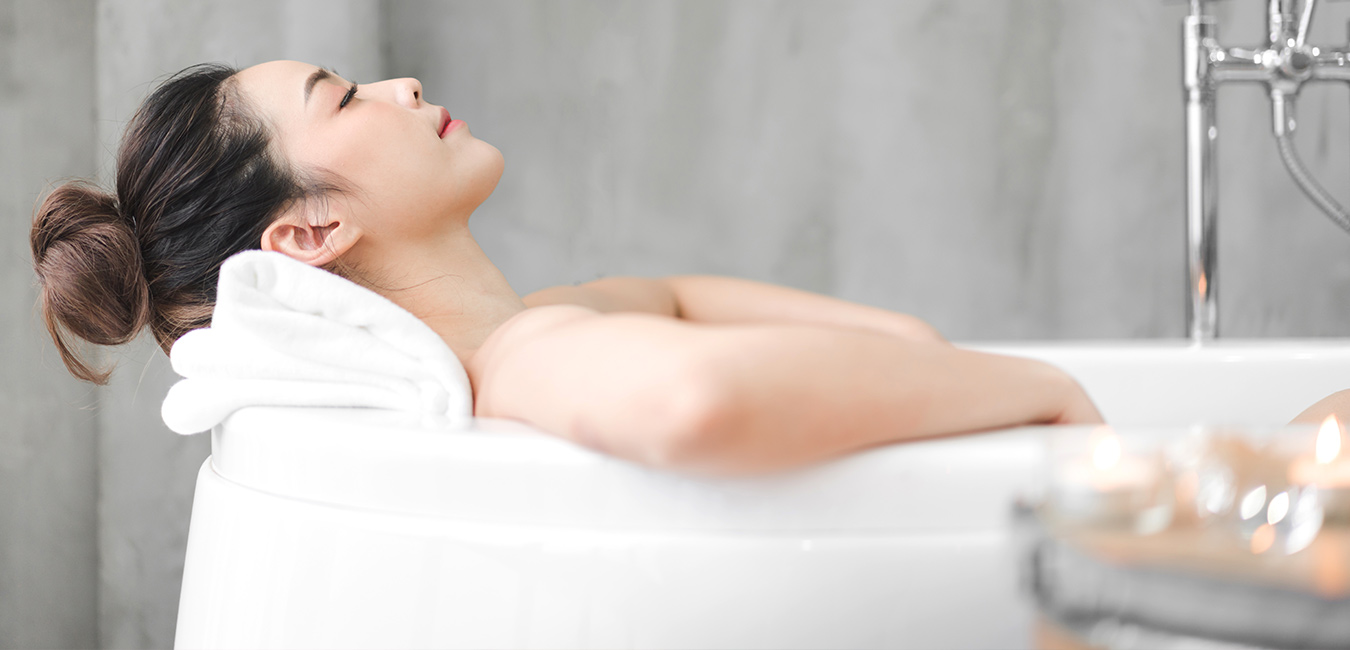If you enjoy soaking in a tub, you might be getting more than a big dose of relaxation. Studies show that this soothing activity may improve your heart health. That’s something to consider as the weather begins to turn chilly!
High temperatures cause the blood vessels to dilate—and that lowers blood pressure. Plus a warm bath can help to lower stress. High stress levels can increase the risk of serious health problems like heart attacks and strokes.
The key to this benefit is to seek the heat on a regular basis. In a new study in the journal, Heart, from Japan, where baths are very popular, researchers tracked the bathing habits of some 30,000 people over 20 years. The scientists also monitored the participants’ health records.
The result? Compared with people who took baths less than twice a week, those who got in a tub almost every day had a 28% lower risk of heart problems overall and a 26% lower risk of stroke. The findings held up even when researchers took into account other factors that can affect heart health, such as exercise, a smoking habit, and diet.
A small study from Loughborough University in England found other health benefits that may affect your risk for heart problems, including high blood sugar. High blood sugar can lead to diabetes, which increases the risk for heart attacks and strokes.
In the study, a group of men were assigned either to an hour in a hot bath (about 104 degrees F) or to an hour of cycling. Then they had their blood sugar tested.
Both cycling and soaking had a positive effect on blood sugar. But the peak blood sugar after eating was about 10% lower among men who took a bath, compared to those who cycled. A high blood sugar reading 2 hours after a meal may indicate that someone is progressing to diabetes.
Like exercise, the heat of tub bathing makes the heart beat faster. It relaxes the blood vessels and gets blood pumping to other parts of the body.
Not surprisingly, the study showed that cycling burned more calories than soaking in a tub. But researchers found that a hot bath burned as many calories as a 30-minute walk. That can be important if you are trying to lose weight.
Cautions
Before you decide to take up the tub habit, it’s wise to speak with your doctor. It’s fine for most people. But if you already have a heart problem or physical limitations related to getting into or out of a tub, you should be cleared first. The researchers found that “warm” and “hot” water had equal benefits. Always test the water with your hand or elbow before you get in the tub to make sure it’s not too hot and could burn you. (To make your bath super soothing, it might help to add Epsom salts, which is said to relax your muscles. Although there’s no hard evidence, it can’t hurt to give it a try.)
As the weather cools, it’s a wonderful time to warm up! Once you get the okay, go for the heat—and help your heart!

